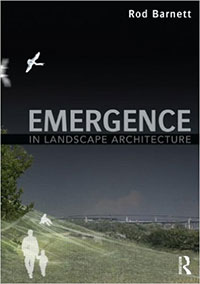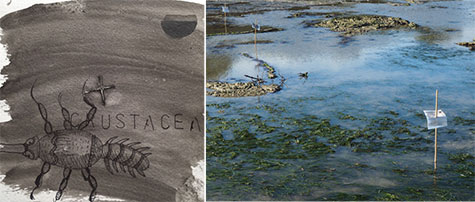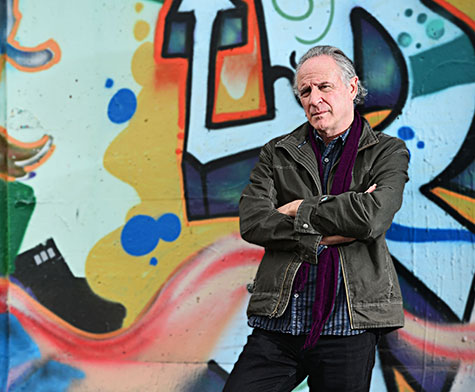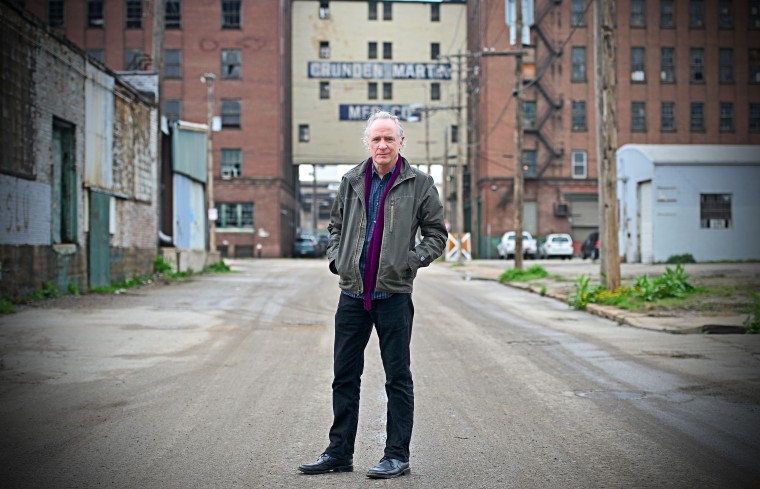In “Emergence in Landscape Architecture” (2013), landscape architect Rod Barnett deploys contemporary systems theory to explore how relatively simple interactions, filtered through continual processes of adaptation and evolution, create larger environments of dizzying complexity.
Last year, Barnett joined the Sam Fox School of Design & Visual Arts at Washington University in St. Louis as professor and chair of the Master of Landscape Architecture in the Graduate School of Architecture & Urban Design. Here, the New Zealand native talks about emergence theory, his impressions of St. Louis and the role of the landscape architect today.

What don’t Americans understand about New Zealand?
Like the United States, New Zealand is a colonial country with a frontier tradition. We call it the “Number 8 wire mentality” — the sense of being able to take on any job with nothing more than eight-gauge fencing wire.
With respect to environmental stewardship, New Zealand is a small country with a lot of open space and a low carbon footprint, but we’re still not as progressive as we brand ourselves.
People also tend to overlook the biculturalism. I have Maori ancestry, and Maori culture is an important part of our South Pacific heritage. But you watch the Peter Jackson films and everybody looks English.
As an undergraduate, you studied psychology and philosophy. How did you find your way to landscape architecture?
When I got to university, I realized I was naturally drawn to thinking about ideas. My focus was continental philosophy, people like Foucault and Derrida, which I’ve continued to follow as it has evolved over the last 20 or 30 years. Clearly, it’s been a watershed in the ways we think about the world.
But as I was doing my master’s, I got a part-time job with a landscape designer. He would create gardens based on a Shubert piece, or on “Le Roman de la Rose.” (Laughs.) I found that enormously exciting.
‘I am a strong believer that existing conditions have to be addressed and involved — that you have to begin with the people who are there.’
-Rod Barnett
It sounds very playful.
Playful, but also completely intentional! I suddenly realized that you can rearrange things like trees, plants and water according to artistic concepts. That’s what drew me in.
You’re known for integrating philosophical and mathematical ideas, such as emergence theory, into landscape architecture. What is emergence?
The two-penny answer? Think of a system. The city is a system, the body is a system, the economy is a system. When a system is disturbed, it has to evolve or adapt. As a result, it achieves a higher level of complexity or integration.
So emergence is the facility to adapt on the basis of disturbance. That’s how ecosystems work, that’s how the economy works — that’s how the world works. You throw something at a system and a new condition emerges.
Do you see yourself as introducing new concepts into landscape architecture, or is it more a question of finding a new vocabulary to describe longstanding practices?
I think both are true. In some ways, the idea of emergence reflects things landscape architects have always done. But I’m also interested in finding concepts that allow landscape architects to think more broadly about what we do.
In a way, that’s why I came to the Sam Fox School. There’s enormous potential here for interdisciplinary cross-fertilization.

What are your impressions of St. Louis?
I’m fascinated by the arts and music scenes, and by the developing youth culture. It’s a city that’s open to new things and that attracts people who want to engage that openness. I think that spark of life will be critical to its future.
That’s a surprising answer. I was expecting you to talk about the Mississippi.
I’ve done excursions and tried to understand the river and how intrinsic it is to the city. The environmental history of St. Louis is obviously bound up with everything it has become.
But when you drive around and look at the city, and think about what it could become, you’re struck by these incredible open landscapes. To me, the important thing is to take those landscapes for what they are — to make interventions on the basis of the histories and cultures that have already expressed themselves here.
That’s the beauty of St. Louis. It would be a mistake to just pretty things up.
So what is the role of the landscape architect today?
I am a strong believer that existing conditions have to be addressed and involved — that you have to begin with the people who are there. To do otherwise is neither participatory nor democratic. The days of walking around and declaring, “That will be a park” are gone.
I see the urban condition as a field. On that field are certain spots of intensity or intensification — landscape intensifications but also social and cultural intensifications. As a landscape architect, you’ve got to use that energy, to build on it, to bring it into the project.
To me, landscape architecture is not just about designing for a firm or an organization. It’s a social and cultural force that engages neighborhoods, that helps make connections and that assists people in re-imagining their world.
The world is composed of overlapping systems. My job is to help people understand those systems, to find the places they intersect, and to harness and learn from that energy.


Comments and respectful dialogue are encouraged, but content will be moderated. Please, no personal attacks, obscenity or profanity, selling of commercial products, or endorsements of political candidates or positions. We reserve the right to remove any inappropriate comments. We also cannot address individual medical concerns or provide medical advice in this forum.